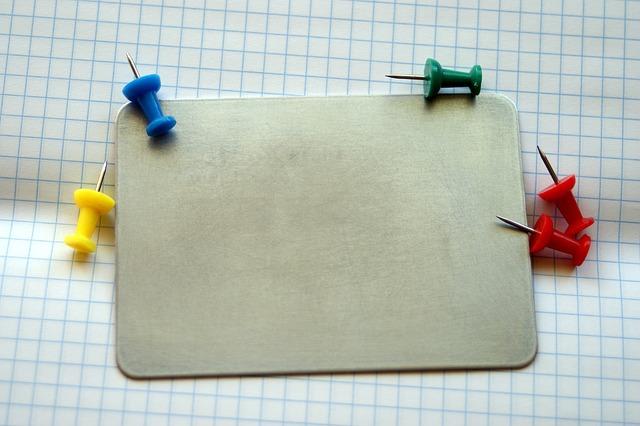How to Write a Bio About Yourself for Work Examples: Learning from Sample Introductions
Writing a compelling bio about yourself for professional purposes can be a challenging task. It requires striking a balance between showcasing your skills and accomplishments while remaining humble and relatable. In this article, we will provide you with examples of effective introductions for your work bio, giving you the tools you need to craft a standout self-description that will leave a lasting impression on employers and colleagues.
Contents
- Introduction
- Highlighting your key professional achievements
- Crafting a compelling personal narrative
- Incorporating relevant skills and qualifications
- Showcasing your personality and values
- Creating a concise and impactful bio
- Tailoring your bio for specific work environments
- Utilizing examples for inspiration and guidance
- Proofreading and editing for clarity and professionalism
- Seeking feedback and making revisions
- Concluding Remarks
Introduction
When crafting a bio about yourself for work, it’s essential to strike the right balance between showcasing your skills and experiences while also conveying a bit of your personality. A well-written bio can help you make a strong first impression, whether it’s for a job application, a professional networking site, or your company’s website.
To help you write a compelling bio, we’ve gathered some sample s to guide you. By analyzing these examples, you can learn how to structure your own bio and highlight the most important aspects of your professional identity. Remember, your bio should be concise, engaging, and tailored to your target audience.
Some key elements to consider when writing your bio include your professional background, key accomplishments, areas of expertise, and any unique traits or interests that set you apart. By incorporating these elements into your bio, you can create a well-rounded and memorable that leaves a lasting impression on your readers. And with a bit of creativity and careful crafting, you can turn your bio into a powerful tool for advancing your career.
Highlighting your key professional achievements
One of the most important aspects of writing a bio about yourself for work is . This is the section where you get to showcase your accomplishments and demonstrate your value as a professional. Here are some tips on how to effectively highlight your key professional achievements in your bio:
- Use bullet points: Organize your achievements in a list format to make them easy to read and understand.
- Quantify your achievements: Whenever possible, include numbers or statistics to demonstrate the impact of your accomplishments.
- Focus on relevant achievements: Be selective about which achievements you include in your bio, focusing on those that are most relevant to your current career goals.
- Use specific examples: Provide concrete examples of your achievements, rather than vague statements.
By following these tips, you can effectively highlight your key professional achievements and create a compelling bio that showcases your expertise and accomplishments. Remember to tailor your bio to your specific audience and goals, and don’t be afraid to showcase what makes you stand out as a professional.
Crafting a compelling personal narrative
is essential when it comes to writing a bio about yourself for work. Your personal narrative should showcase your unique skills, experiences, and passions in a way that captivates your audience. Here are some tips on how to craft a compelling personal narrative:
- Start with a hook: Grab your reader’s attention right from the start by including an interesting fact or anecdote about yourself.
- Highlight your achievements: Showcase your accomplishments and successes to demonstrate your value and expertise in your field.
- Show your personality: Let your personality shine through in your bio by including personal anecdotes or insights that give readers a sense of who you are.
- Keep it concise: While it’s important to include relevant information about yourself, make sure your bio is concise and to the point.
By following these tips and learning from sample introductions, you can create a bio that effectively communicates your personal narrative and sets you apart from the competition. Remember, your bio is your chance to make a strong first impression, so take the time to craft a compelling and engaging narrative that showcases your unique talents and qualities.
Incorporating relevant skills and qualifications
When it comes to writing a bio about yourself for work, it’s essential to highlight your relevant skills and qualifications to make a strong first impression. Your bio should effectively communicate your expertise and experience in a concise and engaging manner. Here are some examples of how you can incorporate your skills and qualifications into your bio:
Highlight Key Skills: Start by identifying your key skills that are relevant to the position you are applying for. These could include technical skills, soft skills, or industry-specific skills that set you apart from other candidates.
Showcase Qualifications: Mention any relevant degrees, certifications, or training that demonstrate your qualifications for the role. This can help establish your credibility and expertise in your field.
Provide Examples: Back up your skills and qualifications with concrete examples of how you have successfully applied them in previous roles. Use specific achievements or projects to demonstrate your capabilities to potential employers.
- Keywords: Incorporate relevant keywords related to your skills and qualifications to make it easier for recruiters to find your bio in online searches. This can help increase your visibility and attract the attention of hiring managers.
By effectively incorporating your skills and qualifications into your bio, you can create a compelling narrative that highlights your strengths and positions you as a top candidate for the job. Remember to tailor your bio to each specific job application to best showcase your relevant experience and expertise.
Showcasing your personality and values
One way to showcase your personality and values in a bio for work is to highlight your unique strengths and interests. For example, you can mention your passion for problem-solving or your love for teamwork. By incorporating these personal traits into your introduction, you can give potential employers a better sense of who you are as a professional.
Another way to demonstrate your personality and values is through storytelling. Share a brief anecdote that illustrates a time when your values were put to the test or when your personality shined through in a challenging situation. This can help humanize your bio and make you more relatable to hiring managers.
Additionally, consider including specific examples of how you embody your values in your work. Whether it’s through volunteering, mentoring, or simply going above and beyond in your current role, showcasing concrete examples of how you live out your values can make a powerful impression on those reading your bio.
In conclusion, when crafting a bio about yourself for work, don’t be afraid to let your personality shine through. Be authentic, showcase your values, and provide concrete examples to give potential employers a true sense of who you are as a professional. By doing so, you can stand out from the crowd and make a lasting impression.
Creating a concise and impactful bio
is crucial when it comes to showcasing your professional identity. Your bio should provide a summary of who you are, what you do, and why you are the best fit for a certain role or opportunity. Here are some tips on how to write a compelling bio about yourself for work:
1. Identify Your Unique Selling Points: Highlight your key skills, experiences, and achievements that set you apart from others in your field. Focus on what makes you stand out and what value you can bring to the table.
2. Keep it Short and Sweet: Aim to keep your bio between 50-150 words to ensure it is concise and easy to read. Avoid including unnecessary details or jargon that may confuse the reader.
3. Use a Professional Tone: Maintain a professional tone throughout your bio by using language that is clear, confident, and to the point. Avoid using slang or informal language that may detract from your credibility.
4. Update Regularly: Your bio should be a living document that evolves as your career progresses. Make sure to update it regularly to reflect your most recent accomplishments and experiences.
Creating a bio that effectively communicates your professional identity can help you make a strong impression on potential employers and collaborators. By following these tips and crafting a bio that is both concise and impactful, you can effectively market yourself and your skills in the professional world.
Tailoring your bio for specific work environments
When , it’s important to highlight the skills and experiences that are most relevant to the job at hand. By customizing your bio to match the requirements of a particular role or industry, you can make a stronger impression on potential employers or colleagues. Here are some tips on how to write a bio about yourself for work examples:
- Understand the company culture and values.
- Identify key skills and qualifications they are looking for in candidates.
- Focus on work experiences that align with the job requirements.
- Showcase any specific achievements or projects that demonstrate your expertise.
- Incorporate industry-specific keywords to showcase your knowledge and expertise.
- Optimize your bio for search engines by including relevant terms.
By following these tips and crafting a tailored bio for specific work environments, you can effectively communicate your qualifications and stand out as a strong candidate or professional in your field. Remember to always update and revise your bio regularly to keep it relevant and impactful.
Utilizing examples for inspiration and guidance
When it comes to writing a bio about yourself for work, examples can be incredibly helpful for providing inspiration and guidance. One way to learn how to craft a compelling introduction is by studying sample introductions from professionals in your field. By analyzing how others have effectively highlighted their skills and experiences, you can gain valuable insights into how to showcase your own strengths.
Examining sample bios can also help you understand the best way to structure your own introduction. By observing how others have organized their information, you can get a sense of what works well and what doesn’t. Pay attention to how they start their bio, what key points they include, and how they wrap it up. This can serve as a blueprint for creating a bio that is concise, impactful, and engaging.
Additionally, studying examples can help you identify common themes and strategies that successful professionals use in their bios. Look for patterns in how they communicate their achievements, skills, and values. By learning from these patterns, you can tailor your own bio to effectively communicate your unique qualities and stand out to potential employers or clients.

Proofreading and editing for clarity and professionalism
Writing a bio about yourself for work can be a daunting task, but with the right guidance, it can be a breeze. One important aspect of writing a compelling bio is making sure it is clear and professional. Proofreading and editing your bio is crucial to ensure that it conveys the right message and presents you in the best light possible.
Here are some tips for proofreading and editing your bio for clarity and professionalism:
- Check for spelling and grammar errors: Typos and grammatical mistakes can detract from the professionalism of your bio. Make sure to carefully review your writing for any errors.
- Use clear and concise language: Avoid using jargon or overly complex language in your bio. Instead, opt for clear and concise wording that is easy to understand.
- Remove unnecessary information: Focus on including relevant information that highlights your skills and accomplishments. Remove any unnecessary details that do not add value to your bio.
| Example Introduction | Description |
|---|---|
| John Doe is a dedicated marketing professional with over 10 years of experience in digital marketing. | Highlights the individual’s experience and expertise in the field. |
| Sheila Smith is a talented graphic designer known for her creative approach to visual communication. | Highlights the individual’s specific skills and strengths in graphic design. |
By following these tips and learning from sample introductions, you can write a bio about yourself for work that is clear, concise, and professional.

Seeking feedback and making revisions
When it comes to writing a bio about yourself for work, is key to creating a strong introduction that effectively showcases your professional experience and accomplishments. By incorporating feedback from colleagues, mentors, or peers, you can gain valuable insights on how to improve your bio and make it more engaging and impactful.
One way to gather feedback is to share your bio with trusted individuals and ask for their honest opinions. This can help you identify areas that may need improvement, such as the clarity of your language, the relevance of your achievements, or the overall tone of your introduction. By being open to feedback and willing to make revisions, you can ensure that your bio effectively conveys your unique skills and qualities.
When making revisions to your bio, consider the following tips:
- Focus on your professional experience: Highlight your relevant work experience, skills, and achievements.
- Keep it concise: Aim to keep your bio to a few paragraphs to maintain readability.
- Showcase your personality: Add a personal touch to make your bio more engaging and memorable.
- Edit for clarity and consistency: Ensure that your bio is easy to read and free of any errors or inconsistencies.
Concluding Remarks
In conclusion, crafting a compelling bio about yourself for work doesn’t have to be a daunting task. By following the examples provided in this article, you can effectively introduce yourself to potential employers or clients in a clear and concise manner. Remember to highlight your key accomplishments, skills, and experiences, while also showcasing your unique personality. Keep it professional, yet engaging, and watch as your bio helps you make a strong first impression. Good luck!







